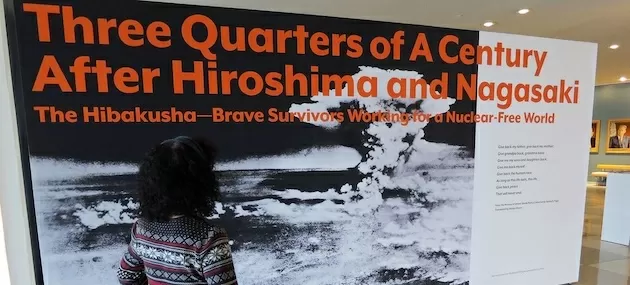The upcoming 79th anniversary of the atomic bombings of Hiroshima and Nagasaki, which took place on August 6 and 9, 1945, is a somber reminder of the devastating consequences of nuclear weapons. This year, as we mark this tragic event, it is important to reflect on the lessons learned and the steps taken towards a world free of nuclear weapons.
On that fateful day in 1945, the United States dropped atomic bombs on the Japanese cities of Hiroshima and Nagasaki, causing unimaginable destruction and suffering. The bombings killed an estimated 90,000 to 210,000 people, with roughly half of the deaths occurring on the first day in Hiroshima. The aftermath of the bombings was catastrophic, with thousands more dying from injuries and radiation sickness in the following months and years.
The decision to use nuclear weapons remains a controversial topic to this day. While some argue that it was necessary to end World War II and save lives, others believe that it was a disproportionate and inhumane act. Regardless of one’s stance, the fact remains that the bombings had a profound and lasting impact on the world.
The devastation caused by the atomic bombings served as a wake-up call for the world to come together and address the threat of nuclear weapons. In the aftermath of World War II, the international community took steps towards disarmament and non-proliferation of nuclear weapons. The United Nations was formed, and the first resolution adopted by the General Assembly called for the elimination of all weapons of mass destruction. The Treaty on the Non-Proliferation of Nuclear Weapons (NPT) was also signed, with the goal of preventing the spread of nuclear weapons and promoting disarmament.
Despite these efforts, the world still faces the grim reality of nuclear weapons. Currently, there are nine countries known to possess nuclear weapons, and the threat of nuclear war remains a constant concern. The recent tensions between nuclear-armed nations, along with the modernization of nuclear arsenals, serve as a stark reminder of the destructive power of these weapons.
The 79th anniversary of the atomic bombings of Hiroshima and Nagasaki is an opportunity for us to reflect on the progress made towards a world without nuclear weapons. It is also a time to renew our commitment to achieving this goal. As we remember the victims of the bombings, we must also honor their memory by working towards a safer and more peaceful world.
One positive development in recent years has been the adoption of the Treaty on the Prohibition of Nuclear Weapons (TPNW) by the United Nations in 2017. This historic treaty, which entered into force in January 2021, prohibits the development, testing, production, stockpiling, transfer, use, and threat of use of nuclear weapons. It also calls for the elimination of existing nuclear weapons and the assistance of victims of nuclear weapons use and testing.
While the TPNW has faced criticism from nuclear-armed states, it is a significant step towards achieving a world free of nuclear weapons. It sends a strong message that the majority of the international community is committed to disarmament and non-proliferation. It also highlights the moral and humanitarian imperative to eliminate these weapons of mass destruction.
On this 79th anniversary, we must also remember the survivors of the atomic bombings, known as hibakusha. These brave individuals have lived through the horrors of nuclear war and have dedicated their lives to spreading the message of peace and the abolition of nuclear weapons. Their testimonies serve as a powerful reminder of the human cost of nuclear weapons and the urgent need for their elimination.
As we look towards the future, it is crucial that we continue to work towards the complete elimination of nuclear weapons. This includes not only the disarmament of existing nuclear weapons but also preventing the proliferation of these weapons to other nations. It is also essential to address the root causes of conflict and promote peaceful resolution of disputes.
The 79th anniversary of the atomic bombings of Hiroshima and Nagasaki is a time for reflection, but it is also a call to action. We must not forget the lessons learned from this tragic event and continue to strive for a world free of nuclear weapons. Let us honor the memory of the victims by working towards a safer and more peaceful future for all.



